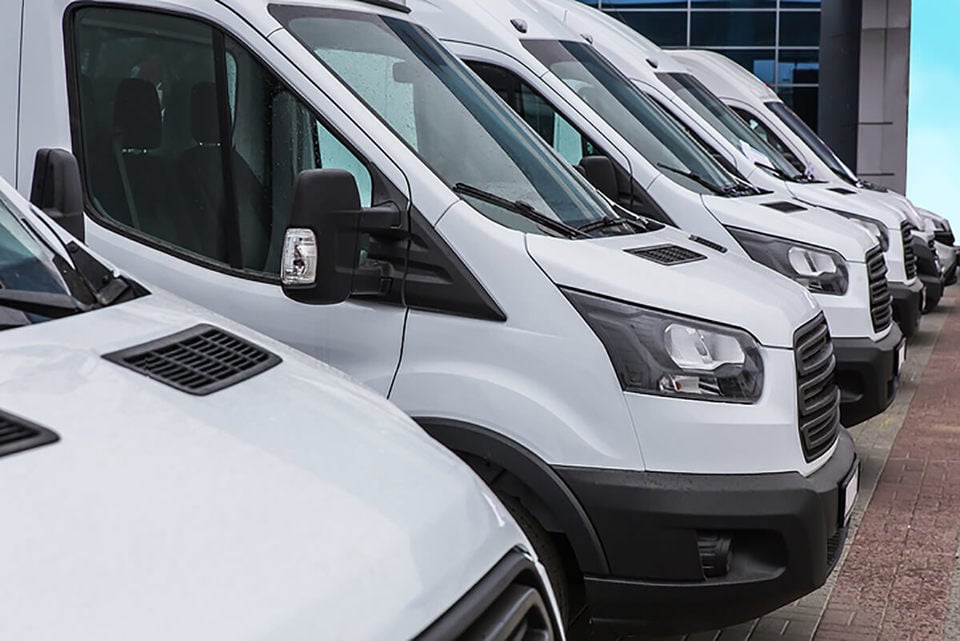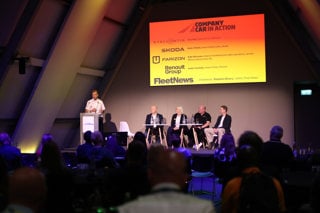A tiny proportion of the vans scrapped under the ultra-low emission zone (ULEZ) scrappage scheme were replaced with an electric vehicle (EV), new research suggests.
Analysis of figures from Transport for London (TfL), by campaigners Clean Cities, shows that of the 16,207 applications to scrap a petrol or diesel van approved between January 2023 to May 2024, 374 were replaced by an electric equivalent – some 2%.
The scrappage payment for vans was increased from £5,000 to £7,000, while grants to replace a non-compliant van with an EV were increased from £7,500 to £9,500, four weeks before the ULEZ was expanded in August, last year.
The car and van scrappage scheme was launched by TfL at the start of 2023, with 52,000 grants having been approved for Londoners, equivalent to more than £178 million.
The Mayor of London’s office told the BBC that Londoners who received the scrappage grant could decide how to spend the money and that it did not have to be spent on an EV.
Oliver Lord, UK head of Clean Cities, said: “The Mayor’s van scrappage scheme is a leading endeavour, but something isn’t right if only 2% of businesses in London have ditched diesel and switched to electric instead.
“Londoners rightly expect businesses to step up and play their part in cleaning the air and protecting the environment, but more support is needed to make cleaner electric vans a viable option.”
Recent polling, commissioned by Clean Cities, has revealed 67% of Londoners believe small businesses still need more support to help them switch to EVs.
The survey of 4,000 UK adults also finds that three-in-five (59%) Londoners want their councils to take stronger action against air pollution and protect the environment. Nearly half (46%) also believe delivery vehicles have a negative impact on their local roads.
Campaigning for policy change, Clean Cities is launching Clean Cargo Capital, a campaign focused on accelerating the uptake of electric or pedal powered commercial vehicles in London.
The campaign is calling on Mayor of London, Sadiq Khan, to improve incentives for businesses to switch to electric vans, such as reviewing and reprioritising the ULEZ scrappage fund and extending the Congestion Charge Cleaner Vehicle Discount for SMEs, ride-hailing, and car-sharing services until late 2027.
The discount is set to be discontinued at the end of 2025, meaning it will cost businesses the same to drive a diesel or electric vehicle in central London, despite electric van sales lagging and diesel being one of the largest contributors to air pollution in this area.
Lord said: “Our polling shows a majority of Londoners believe small businesses should have more support to help them switch to electric vehicles, so it’s puzzling that the Mayor is set to remove the Congestion Charge discount next year.
“A newly elected Mayor and a new government offers a unique opportunity to double down and deliver the regulatory certainty, incentives and infrastructure that businesses need so that electric vans become the norm and not a nice to have.”
New government should consider ZEV Mandate van change

FleetCheck MD Peter Golding is calling for the next Government to change the Zero Emissions Vehicle (ZEV) Mandate for vans, because of a range of issues being faced by fleets.
He says that the gap between the capabilities of the vehicles on offer and the needs of many fleets was proving too wide and there were no easy ways of bridging that divide.
“The massive success of electric company cars in recent years has shown that fleets are willing and able to electrify rapidly and on a large scale,” continued Golding. “However, the situation for vans is proving much, much more difficult.
“For some fleets that carry lighter loads over shorter distances, and where depot or off-street domestic charging is available, electric van adoption can be relatively simple but for others, there are a whole host of hurdles.
“Limited range and payload, and poor access to overnight charging for drivers living in terraced houses or apartments are very real and widespread problems, as well as more specific difficulties surrounding everything from the 4.25 tonne derogation to 12-volt battery charging. That’s before you get to residual values.”
Given these difficulties, he believes the ZEV Mandate target of 70% of all van sales being electric by 2030 looked potentially unrealistic.
“That’s just six years away which means, for most van fleets, not much more than one replacement cycle,” said Golding. “The structural problems that fleets are facing seem extremely difficult to solve in that timespan.”
He added: “We are already talking to fleets who are thinking about keeping hold of their diesel vans for as long as possible in order to delay the switch to electrification.
“If a Government policy is directly leading fleets to consider hanging onto much more polluting vehicles for longer, it is probably the wrong policy.”

























Login to comment
Comments
No comments have been made yet.